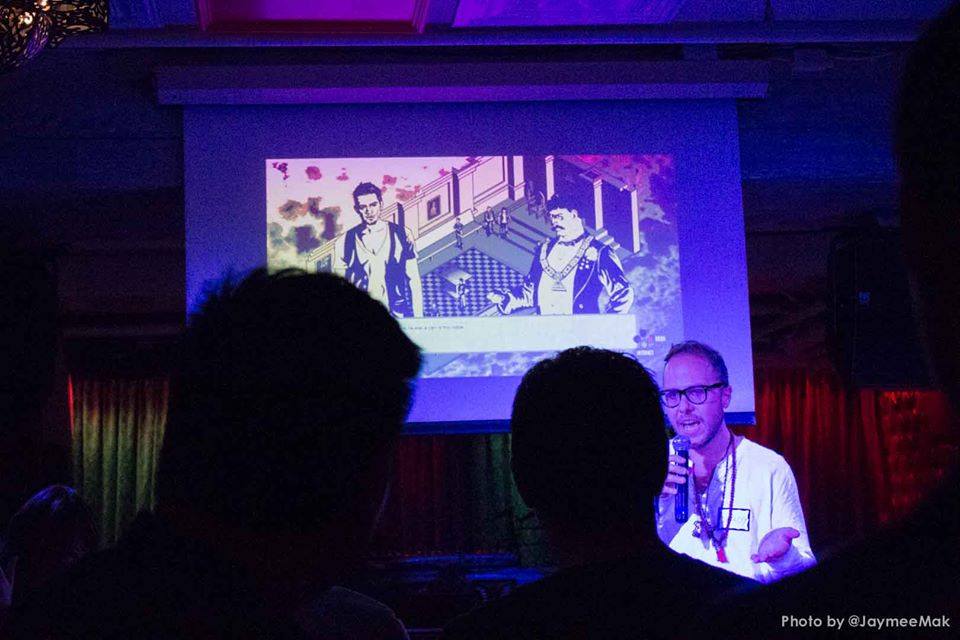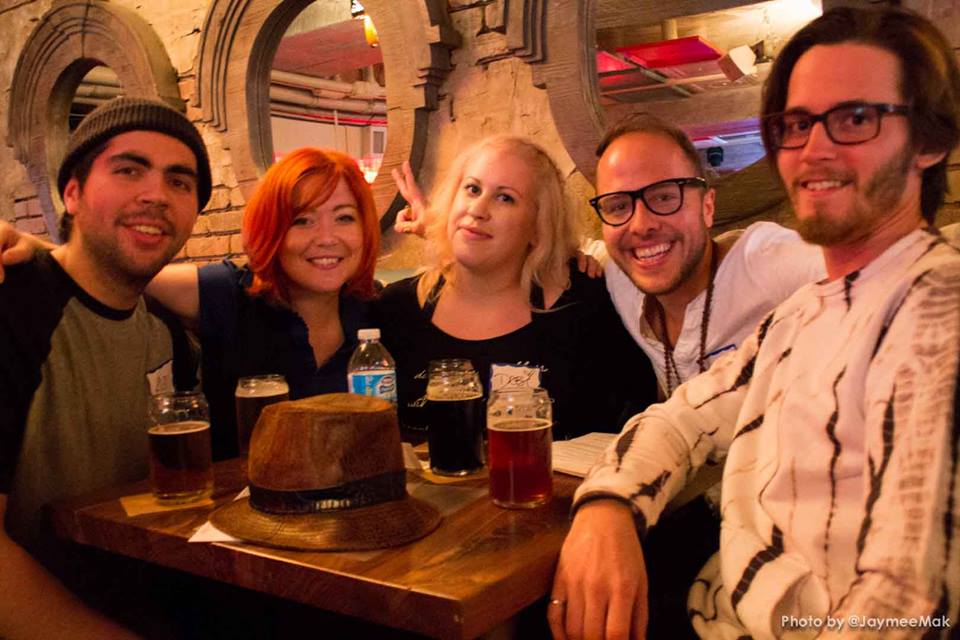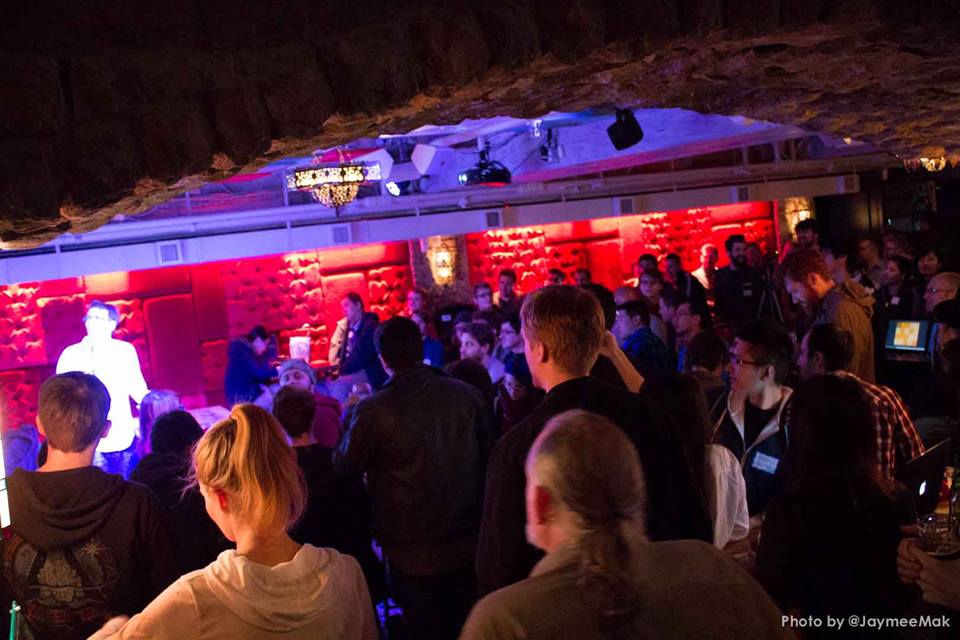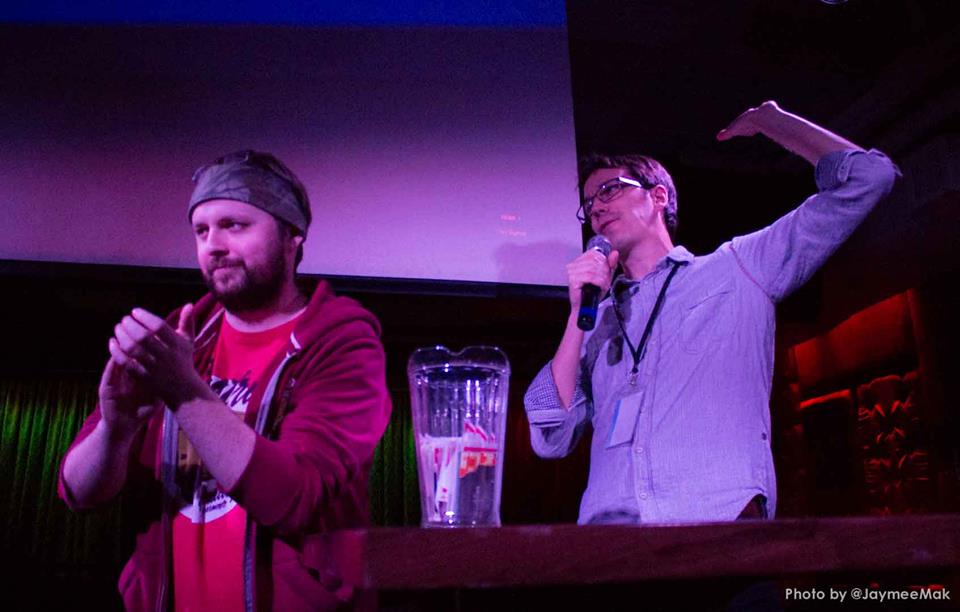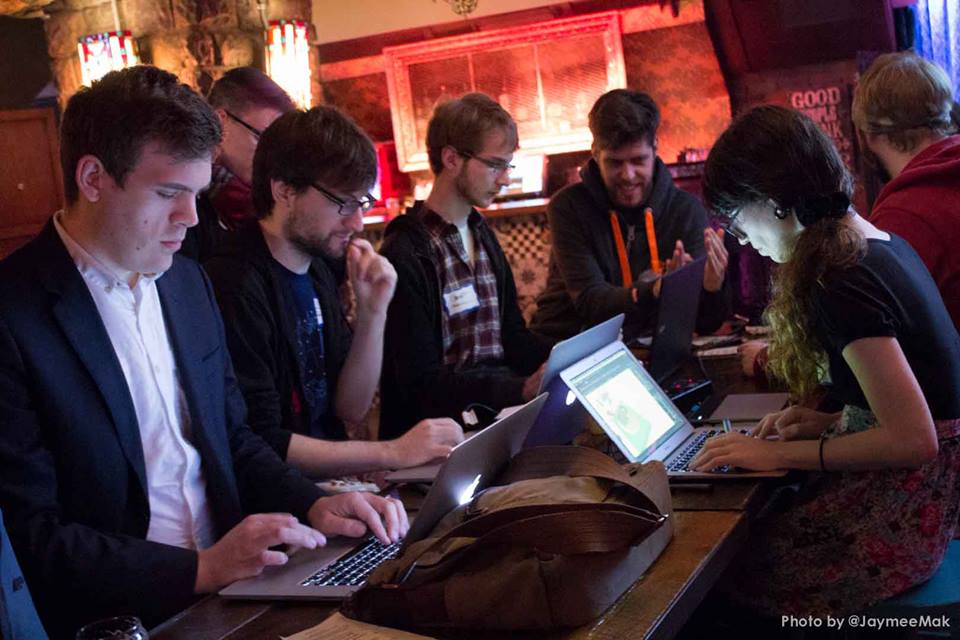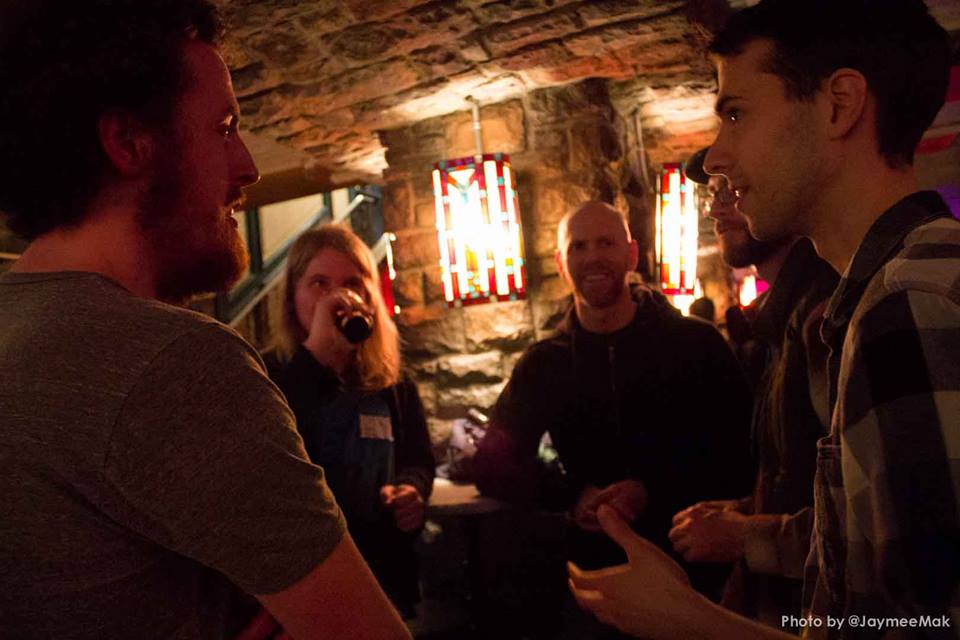April 22nd was the 66th monthly Full Indie meetup. I hadn't been going for a while so I decided to explode back onto the scene by giving a talk about my own indie experience on X-Box Live Indie, Esoterica America! It was an incredibly positive experience and everyone seemed to enjoy the talk a lot, many remarking that it was one of the most 'honest' talks they had ever seen. The meetup in general was amazing, and I was astounded and flabbergasted to see the sheer amount of local talent we have in the industry here in Vancouver, and in the indie sector no less! I have always felt Vancouver to be an extremely strong hub of creative energy and talent, and the video game sector is definitely no exception!
Video of the Talk
Here's a (not so) quick rundown of my talk...
Esoterica America was a test game i helped make at the inception of a friend's video game company, V7 entertainment, where I ended up working for 3.5 years up until last June. It was done as a test run of the Xbox live process, as the company's main project was slated to be released for Xbox live Arcade.
We began production in one of the founder's, Elmar's, garage before the company won a competition to move into a local generator space.
Team Overview:
- Elmar Dela Cruz: Writer / Spiritual Project Lead
- Mike Torillo: Producer / PM / Scripter / Game Designer
- Karthik Venkateshan: Programmer Kenny Xheng 3d Assets / Bug Crunching
- Matthew Schade: Game Designer / Art Director / 2d Assets / Cinematics
Overall it took about 4 months to produce and generated a few hundred dollars revenue over its run so far. It had a $3 price point, which was very high on XBLI for the time, but also had a very high conversion rate relative to the overall marketplace. The critical response to the game was divisive, with a few very negative, but overall, overwhelmingly positive responses. Therefore, it must be concluded that artistic integrity is good for critics, but very bad for business. A few excerpts from the critical responses:
"[Esoterica America] strikes a nice tone between raised-eyebrow cynicism and starry-eyed credulity; plus, it’s artistically quite gorgeous, and only costs a couple of quid. A genuine one-off.”
– Tom Hughes, The Gaurdian, UK
“Ambitious and vast mystery RPG adventure … This is truly special. Frankly, absolutely brilliant.”
– DIY Games
"If Katamari Damacy shot up on Drain-O while Deadly Premonition slipped a hand under it’s skirt you still wouldn’t get half the ‘f#cked up’ that Esoterica America delivers in the first two minutes of play"
- Justin Talks to Himself
"...kept me visually enraptured throughout gameplay."
- GamingTruth
The game was originally meant to be a point and click pixel searcher / storybook puzzle game. Elmar created the idea to make a game based on secret societies, a long time passion for him, with an emphasis on demystifying and normalizing them as simple mystical schools.
After making a few artistic iterations and getting input from the whole team, i settled on a black and white rotoscoped look utilizing a stark black and white aesthetic I've always loved. I then got the team's blessing to move ahead and begin producing art, however...
Elmar wrote a wonderful script, but it was mostly a dialogue script, and the team had trouble moving forward with actually gameplay elements. In absence of this, and since i had always liked top down, isometric rpgs, i pitched making an adventure game based on this gameplay style. I managed to convince Karthik -- who was, at the time, mired in the company's main project -- of the merits of this approach and to lend his programming help to implement this gameplay feature.
After this decision was reached, it allowed us to implement other cool ancillary design features, such as the 'spirit realm' versions of each level to allow us to double up on exploration, the meditation mechanic to include thematically relevant action and progression, the notebook feature and related puzzles to drive home thematically related knowledge and interesting facts.
In retrospect, making it an isometric adventure game probably made for the single biggest awesome factor critically for the game, it made the single biggest mistake financially for the overall production. It increased production time by about double, I would guess, without potentially increasing relative sales.
At the time, I was only considering what I wanted to do, and had the most ideas for. However if I had challenged myself to work within the tighter restraints of the point and click / storybook paradigm, i probably could have helped the product get to market much sooner to test it's performance.
Therefore, my single biggest game design take away from this project was to try to, from now on, design within the confines of the team's capability and strengths, with a focus on predictive market behaviour -- as much as you can -- and get to market fast, fast, fast!
When designing, ideate and work well within the constraints of your team's consolidated skill set. Do not go blue sky, stick to the earth you know, the ground that holds you. This way you can ensure maximum speed during production in order to get to market and find out if your idea actually floats. This is the true test, and unless you have a research team the size of Google supporting your game design idea, you probably won't really know until you get to market.
Be open, encourage all team mates to leverage their strengths, get to market fast, as they say, fail fast, except... don't fail! Because following this method, you'll be back on your feet with doubled experience before you know it!
